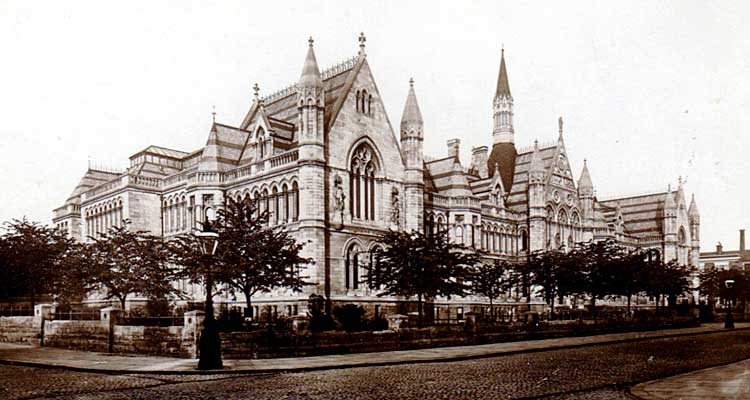Events and excursions, Autumn 2022
NOTTINGHAMSHIRE HISTORY LECTURE - 8th OCTOBER
The Institutionalisation of Scientific Culture in Nottingham 1843-1903, Mike Noble, University of Nottingham

The Nottinghamshire History lecture was established in 1990 to give ‘new’ (originally ‘young’) historians an opportunity to present their research to a wide and appreciative audience. Mike Noble, who qualifies as both a new and young historian, gave a deeply researched and thoughtful lecture to the Society, arising from long-standing interests in the development of intellectual, cultural, and scientific organisations in the 19th and 20th century. Having worked on the Leicester Secular Society for his MA dissertation, Mike went on to study for his PhD at the University of Nottingham. This placed the development of University College Nottingham (the forerunner of the modern University of Nottingham) in the social, cultural, and political context of the First World War. Mike’s thesis examined the effect of wartime conditions on the College and the contribution it made to the national war effort. For this lecture, Mike moved back in time, filling the gap between existing work on the 17th/18th centuries by Ian Inkster and Paul Elliott (previously published in Transactions), and the early-20th century focus of his doctorate. What emerged from Mike’s presentation was that Nottingham entered a formative period, from the mid-1840s to the end of the century, in terms of providing more places to meet to research and discuss scientific culture, and the extent to which these places had stronger organisational underpinnings - whether through direct encouragement and financial support from the local Corporation, or as a result of private subscription and voluntary endeavour. Now familiar organisations such as Bromley House Subscription Library and the Mechanics’ Institute were placed in their social and cultural context, whilst the emergence of University College (officially opened in 1881), with an integral library and museum, offered a significant coming together of different strands of activity. Mike’s research showed how Nottingham’s scientific culture gradually broadened out, from an essentially ‘amateur’, private pursuit to one which was advanced in increasingly public, ‘professional’ ways.
A particularly significant theme, pursued in the question and answer session which followed, was the relationship between changes in Nottingham’s scientific culture and the needs of local employers in equipping their workforce with the knowledge and skills required to compete in an increasingly global economy.
Richard Gaunt